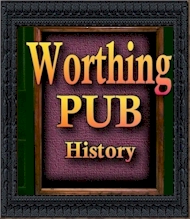 |
 |
 |
|
|
CLOCK PUBLIC HOUSE - 112/114 CHAPEL ROAD |
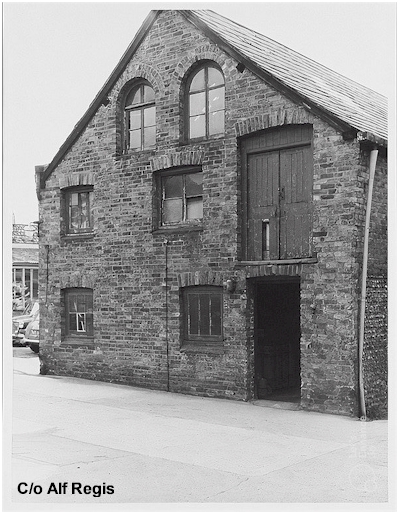 |
This is the incredible story
of the Clock Public House and brewery that once stood on the corner
of Chapel Road and Lennox Road. The Clock pub wasn't a pub in the same meaning we have today, but rather a beer house attached to the Clock Brewery. The clock name derived from the clock above the front door. Henfrey Smail in his 1946 book 'The Worthing map Story' mentions the famous Clock brewery but reveals very little detail, we however discovered its big secret, one that involves large scale fraud, tax evasion and a secret room. It is thought that the first malt house on the property was around 1821. It was acquired in 1851 by the Allen brothers and burnt to the ground in 1854, it was at this inappropriate time it was discovered that the town fire pump was clogged up with grain due to poor maintenance. This gave the Allen brothers the opportunity to rebuild and they took full advantage of that as we shall discover.
|
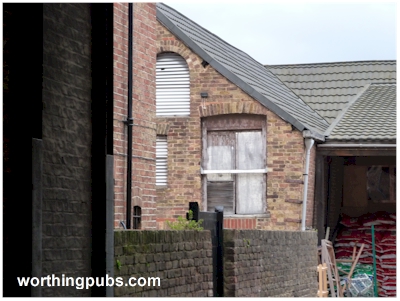 |
Alfred and Dennett Allen were popular maltsters in Worthing, their popularity rose because of the generous prices they would pay for the barley and the good wages paid to their staff. Despite the high outgoings they seemed to make an excellent profit year on year and became wealthy merchants but there was a secret behind their success and it was this secret they had to share with select members of staff, it was one of these members who decided to blackmail the Allen brothers. |
|
The Allen's chose not to yield to his demands and perhaps called his
bluff. It would turn out that the now ex-employee went to or sent a tip
off to the excise authorities, no details were revealed but informed
them that all was not as it seemed with the business. A surprise inspection was made on the Worthing malt house at 4am on the 31st of March 1857. After nearly five hours and nothing to show the excise inspectors they must have been losing interest when a discovery was made . . . soft mortar was found in the brickwork on the lower floor of one of the malt houses. |
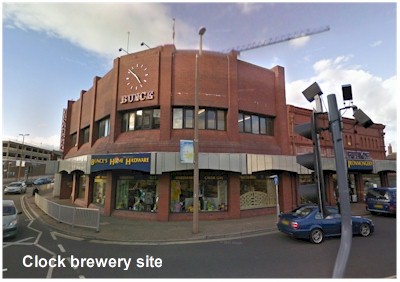 |
|
It didn't take long to reveal a cast iron framework in to which bricks were set, a simple but ingenious device that allowed a section of wall to be removed and replaced with the minimum of noise and effort. Once back in place only the outline needed a smoothing of fresh mortar to make it blend in with the rest of the wall.
What they found was astonishing, a short passage lead down to an
underground vault full of barrels of malt. The contents were equal
exactly to those upstairs and it would appear that each barrel the Allen
brothers sold, they sold another tax free. |
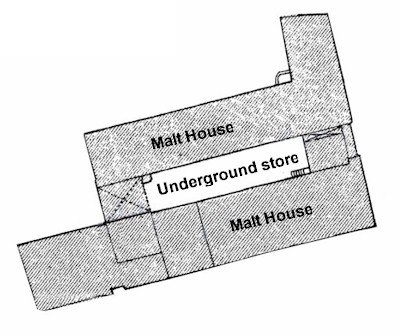 |
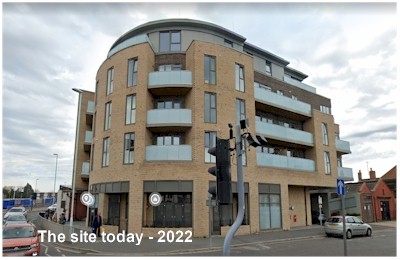 |
On the other side of the vault another passage was found leading back up the the other malt house that was across the yard. the whole vault spanned the width of the yard above. This wasn't a simple construction but a skilled one made to last, further raids on the other malt houses the brothers owned in Sussex found the same arrangement but no stock, word had preceded the raid and the goods quickly removed and disposed of, it was said that much of the stock was feed to local pigs.
|
 |
The Allen brothers now faced a hefty fine and back duty and the case would go to court on the 16th of June and until then the Allen brothers were free to carry on trading, they were however always under the close eye of the police as it was suspected they would try and leave the country. The detectives suspicions weren't unfounded. The day before the court case both brothers boarded a steamer bound for France, the detectives followed, however the brothers doubled back and caught another steamer for London, meantime the detectives had gone on to Paris in search of them. |
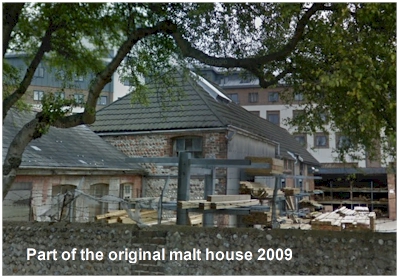 |
When the brothers reached London they boarded an express train to
Liverpool and set sail on a liner to America and sanctuary. They were
aware that America would not deport anyone charged with fraud at that
time.
Back in England the case against them preceded and they were of course
found guilty. A hefty fine was set originally at £370,000 but reduced to
£110,000. Time passed and the solicitor general further reduced the fine to £10,000 with the idea that it was better to get something back rather than nothing at all. The Allen's paid the now affordable fine and returned home. |
